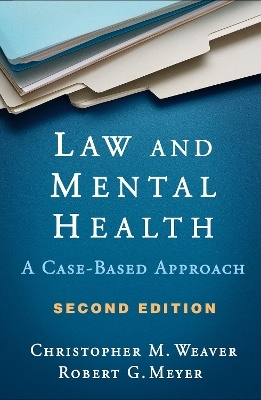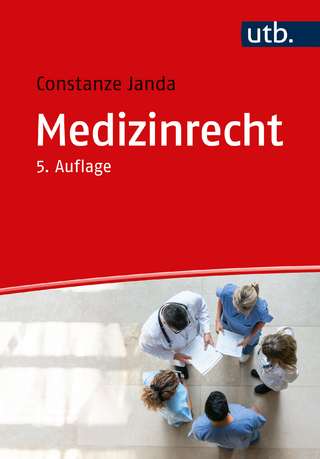
Law and Mental Health, Second Edition
Guilford Press (Verlag)
978-1-4625-4047-1 (ISBN)
New to This Edition
*Updated throughout with current research and substantive changes in mental health law.
*Chapter on competency in juvenile justice.
*Citations of 115 new legal cases.
*Conclusion identifying urgent social challenges facing the field.
Pedagogical Features
*Boxes on key concepts and areas of controversy.
*"Where are They Now?" boxes revisiting people from landmark cases.
*Updated test bank and new downloadable Study Guide.
*End-of-chapter lists of legal cases discussed.
Christopher M. Weaver, PhD, is Associate Professor and Director of the Forensic Psychology Program in the Department of Psychology at Palo Alto University, where he teaches in the areas of forensic psychology, research methods, and statistics. He has held research positions in the Departments of Psychiatry at the University of California, San Francisco, and Stanford University, along with the U.S. Department of Veterans Affairs National Center for PTSD in Menlo Park, California. Dr. Weaver’s publications and research interests center on law enforcement training and the assessment of malingered posttraumatic stress disorder. Robert G. Meyer, PhD, ABPP, is Professor Emeritus at the University of Louisville. He is board certified in both clinical and forensic psychology and is a Fellow of Division 12 (Society of Clinical Psychology) and Division 41 (American Psychology–Law Society) of the American Psychological Association. Dr. Meyer has published over 60 articles, 23 book chapters, and 14 books. He is past editor of the Bulletin of the American Academy of Forensic Psychology and past president of the Kentucky Psychological Association. Dr. Meyer is a recipient of the Lifetime Achievement Award from the American Academy of Forensic Psychology and a corecipient of a regional Grawemeyer Award for innovative curriculum development.
Introduction
I. Psychological Issues and Involvement in Basic Courtroom Proceedings
1. Jury Selection and Process: Precedent Impacting Jury Consultation and Research
2. Admission of Expert Testimony and the Eyewitness
II. Legal Precedent in Everyday Clinical Practice
3. Informed Consent
4. Confidentiality and Privileged Communication
5. Duty to Warn and Protect
III. Clinical Forensic Evaluation
6. Competency
7. Insanity and Criminal Responsibility
8. Civil Commitment and Dangerousness
9. Hypnosis and the Polygraph
IV. Civil Rights and Civil Law
10. Civil Rights of People from Gender and Sexual Minority Groups
11. Personal Injury: Court Proceedings and Assessment of Psychological Damages
12. Prisoners’ Rights to Medical and Mental Health Treatment
V. Specific Mental Diagnoses in the Law
13. Substance Abuse and Dependence
14. Intellectual Disability
15. Psychopathy and Antisocial Personality Disorder
VI. Violent Criminals and Violent Crime
16. Capital Punishment
17. Sex Offenders: Community Notification and Sexually Violent Predator Civil Commitment
VII. Juveniles in the Legal System
18. Foundations of Juvenile Law
19. School Law
20. Child Abuse and Neglect
21. Child Custody
22. Competency and Culpability in Juvenile Justice: Intersecting Challenges, Amanda M. Fanniff
In Conclusion: An Appeal to Students
References
Index
| Erscheinungsdatum | 21.08.2019 |
|---|---|
| Verlagsort | New York |
| Sprache | englisch |
| Maße | 152 x 229 mm |
| Gewicht | 716 g |
| Themenwelt | Geisteswissenschaften ► Psychologie |
| Medizin / Pharmazie ► Gesundheitswesen | |
| Recht / Steuern ► EU / Internationales Recht | |
| Recht / Steuern ► Privatrecht / Bürgerliches Recht ► Medizinrecht | |
| ISBN-10 | 1-4625-4047-3 / 1462540473 |
| ISBN-13 | 978-1-4625-4047-1 / 9781462540471 |
| Zustand | Neuware |
| Haben Sie eine Frage zum Produkt? |
aus dem Bereich


